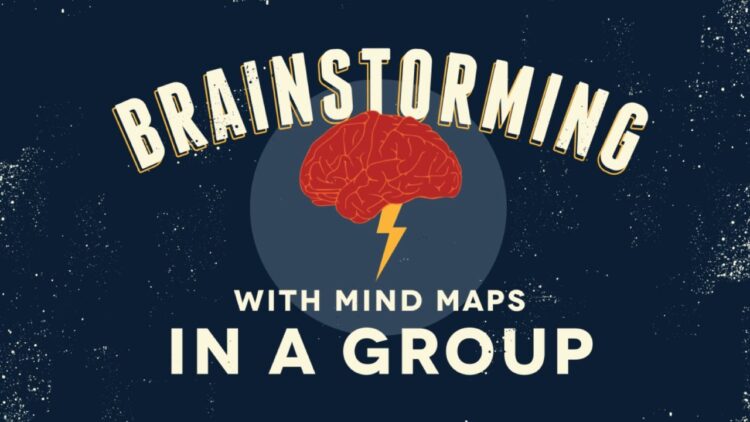“Empower your mind with the right tools, and the digital realm becomes a gateway to limitless knowledge, propelling you towards academic success and a future of boundless possibilities.”
In today’s digital age, students can access many resources and tools to enhance their learning experience. The right software and apps can improve productivity from note-taking to time management. They can help students study smarter. This article will explore software and apps for Windows and Mac users, covering various aspects of academic life.
Are you feeling overwhelmed with your academic essays and assignments? If yes, visit NoCramming. It’s an excellent resource that connects you with experienced writers. These professionals can craft well-researched essays that match your requirements. The Essay Hub Review helps you focus on what matters most in your education while leaving the essay writing to professionals. Now, let’s dive into the article.
Note-Taking and Organization

Effective note-taking is a fundamental skill for any student. Fortunately, there are many software and apps available that make this process efficient and organized.
1. Evernote
Evernote is a versatile note-taking app that allows students to create and organize notes, images, and documents. Its intuitive interface and powerful search capabilities make it easy to find information quickly. Evernote’s synchronization across devices ensures your notes are accessible wherever you go.
2. OneNote
Microsoft’s OneNote is another popular note-taking application that integrates seamlessly with the Windows ecosystem. It offers features like multimedia embedding, handwriting support, and collaboration tools, making it a valuable companion for students across all grade levels.
3. Bear
For Mac users, Bear is an elegant and distraction-free writing app. Its simple interface and Markdown support make it ideal for note-taking and writing essays or research papers. ## Productivity and Time Management Staying organized and managing time effectively are essential skills for students to succeed academically. The following software and apps are designed to boost productivity and help students maximize their time.
4. Todoist
Todoist is a popular task management app that helps students organize their assignments, projects, and personal tasks. With features like due dates, priority levels, and project categorization, Todoist ensures that students always complete all deadlines.
5. Trello
Trello is a visual project management tool that allows students to create boards, lists, and cards to organize their tasks and assignments. Its collaborative features make it an excellent choice for group projects and study groups.
6. Focus@Will
Concentration is vital when studying, and Focus@Will is an app that enhances focus and productivity. It offers a variety of music channels scientifically curated to improve concentration and reduce distractions.
Research and Writing Assistance

When it comes to writing research papers and essays, having the right tools for research and writing can save valuable time and improve the quality of work.
7. Zotero
Zotero is a powerful reference management software that helps students collect, organize, and cite research sources. It integrates with web browsers, making it easy to save articles, books, and other academic resources directly into your library.
8. Grammarly
Good writing is essential for academic success, and Grammarly is an indispensable tool for improving writing skills. This AI-powered writing assistant checks grammar, spelling, and punctuation, providing real-time suggestions to enhance the quality of your writing.
9. Hemingway Editor
The Hemingway Editor is a writing app that helps students improve the readability and clarity of their writing.
Mind Mapping and Brainstorming

When it comes to brainstorming ideas and organizing thoughts, mind-mapping tools are constructive.
10. MindMeister
MindMeister is a user-friendly mind-mapping app that allows students to create, share, and collaborate on mind maps. It’s an excellent tool for brainstorming, outlining essays, and connecting ideas visually.
11. XMind
XMind is another popular mind-mapping software that offers advanced features for students who need more customization and versatility. It supports various map structures and file formats, making it suitable for academic projects. ## Language Learning and Skill Development Learning doesn’t have to be limited to traditional academic subjects.
12. Duolingo
Duolingo is a fun and interactive language-learning app that offers courses in numerous languages. Duolingo’s gamified approach makes the process enjoyable, whether you want to learn a new language for personal or academic reasons.
13. Khan Academy
Khan Academy provides vast free educational content on subjects like mathematics, science, arts, and humanities. Students can access video lessons, practice exercises, and quizzes to enhance their understanding of various topics.
The Importance of Digital Well-Being While this software and apps undoubtedly offer immense benefits, it is crucial for students to be mindful of their digital well-being. Moreover, it’s essential to use these tools responsibly and avoid over-reliance. While software like Grammarly and Hemingway Editor can assist with writing, students should still actively improve their writing skills through practice and feedback from teachers or peers. These apps should be seen as aids to complement and enhance one’s abilities rather than replace them.
Personalized Learning with Adaptive Apps

Adaptive learning apps have gained popularity for their ability to tailor educational content to an individual’s learning pace and style. For instance, language learning apps like Babbel and Rosetta Stone adapt their lessons based on a student’s language proficiency, ensuring they progress at their own pace and focus on areas needing more attention. Such apps can be valuable to a student’s toolkit, enhancing their learning experience and optimizing knowledge retention.
The Ever-Evolving Landscape
The educational software and apps landscape continually evolves, regularly introducing new innovations and updates. Students can expect even more sophisticated tools to support their learning journey as technology advances. Artificial intelligence, virtual, and augmented reality are already entering education, opening up exciting possibilities for immersive and engaging learning experiences. As these technologies mature and become more accessible, students can anticipate a transformative impact on how they study and interact with educational content in the future.
Conclusion
In conclusion, the digital age has brought many software and apps that can significantly improve how students study and learn. The tools mentioned in this article cater to different aspects of academic life, from note-taking and organization to productivity and research assistance. By leveraging these essential software and apps, students can study smarter, stay organized, and develop skills that will serve them well beyond the classroom.
However, it’s crucial to balance digital tools and real-world interactions, ensuring that technology remains a helpful aid rather than a distraction. Happy studying!







